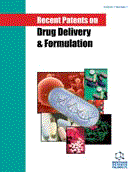Abstract
Infectious diseases are one of the greatest challenges of our new era. Due to
their high incidence and outbreak rate, they can affect human health. Furthermore, the
use of conventional drugs to treat infectious diseases is gradually being exhausted due to
increasing rates of resistance. Herbal medicines and natural ingredients may also be a
good resource for drug production. Several innovations, including the development of
nano-drug delivery systems, have new mechanisms of action and various loadings for
herbal and non-herbal treatments; this helps decrease the pathogenicity of infectious
diseases. In addition, these nano-drug delivery systems provide a good opportunity to
improve the efficacy of herbal and non-herbal treatments. They have also been used to
deliver target medicinal agents, increase solubility, improve bioavailability, extend half-life for herbal and non-herbal treatments, increase stability, minimize adverse effects,
and tissue engineering. Nanocarriers are advanced engineering tailors that control the
physicochemical properties of nanoparticles for infectious diseases, leading to targeting
by passive or active mechanisms. In this chapter, we highlight the advances in
nanocarriers loaded with herbal and nonlherbal agents for treating infectious diseases.
Keywords: Herbal treatment, Infectious diseases, Nanoparticles, Non-herbal treatment, Targeted drug delivery.






















